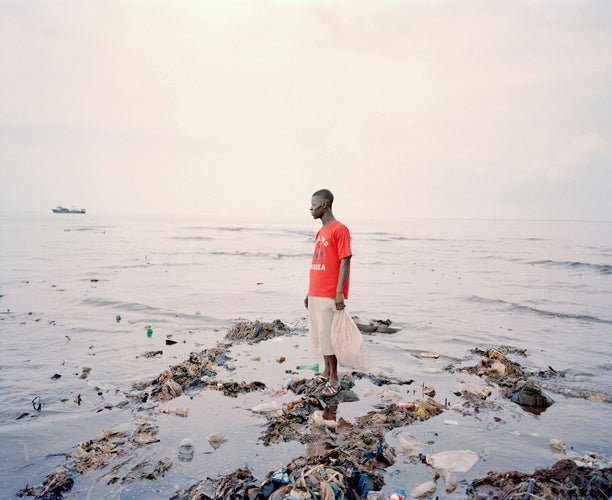Documenting Quiet, Deadly Hardship in Sierra Leone
Sometimes the best photojournalism reveals a story that’s hiding in plain sight. In Mustafah Abdulaziz’s series “Water Is Gold,” the...

Sometimes the best photojournalism reveals a story that’s hiding in plain sight. In Mustafah Abdulaziz’s series “Water Is Gold,” the story is something so simple, so easily taken for granted, that its power lies in the sudden, almost embarrassing moment of recognition: for millions living in Sierra Leone, access to something as seemingly simple as clean water is a life or death issue.
Of course, in Freetown, a city of two million “built to support less than half” that number, water’s lack is anything but simple.
](https://www.popphoto.com/uploads/2019/04/12/MYY3QRLCTAF3HEJTVMPZTQPSBY.jpg?auto=webp&optimize=high&width=100)
From “Water Is Gold”
Abdulaziz, a seasoned photojournalist published in the Wall Street Journal, New York Times and Newsweek went to Sierra Leone on a Pulitzer foundation grant in the aftermath of the country’s most serious cholera outbreak in history. In 2012, 20,736 cases and 280 deaths were reported to the World Health Organization; the actual number is probably far higher.
](https://www.popphoto.com/uploads/2019/04/12/TMD6OYATML4JE4UE2D6NZRYNK4.jpg?auto=webp&optimize=high&width=100)
From “Water Is Gold”
There, he trained his 6 x 7 camera on the realities of life. The photos are honest without being sensational—the vivid realities depicted easily speak for themselves without any further embellishment.
Abdulaziz is an American living in Berlin, and his talent for coaxing rich stories from diverse subjects extends to his home country. His project “Memory Loss” is the result of a trip across the States, documenting how the American dream has both changed and endured. Great stuff.
See more of “Water Is Gold” on Abdulaziz’s site.
](https://www.popphoto.com/uploads/2019/04/12/UDMKZL5SXRW2EQOF4XSY3MI4AQ.jpg?auto=webp&optimize=high&width=100)
From “Water Is Gold”